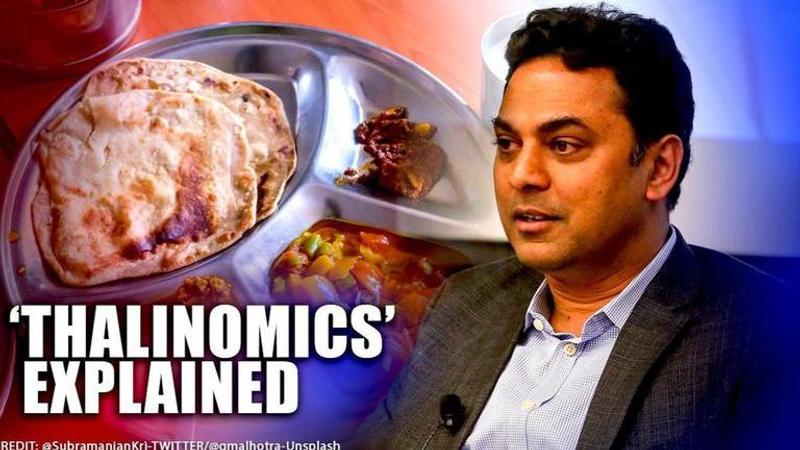Published 17:18 IST, January 31st 2020
Union Budget 2020: Economic Survey introduces 'Thalinomics'; here is what it entails
Dubbed as an attempt to quantify what a common person pays for a Thali, a new concept called ‘Thalinomics’ has been introduced in Economic Survey 2019-20.

The overarching theme of the Economic Survey 2019-20 tabled by Union Finance Minister Nirmala Sitharaman on Friday is wealth creation. Dubbed as an attempt to quantify what a common person pays for a Thali across India, a new concept called ‘Thalinomics’ has been introduced in this year’s survey. According to Chief Economic Advisor K Subramanian, food being integral to the growth of human capital is of paramount importance for national wealth creation. He also notes that 'Zero Hunger' has been agreed upon as a Sustainable Development Goal.
Variables in the analysis
The aim is to ascertain several factors such as the affordability of food for vegetarians and non-vegetarians and the difference in inflation levels over a period of time. For this purpose, the price data from the Consumer Price Index for industrial workers in 80 centres across 25 states and Union Territories has been analyzed. A vegetarian thali comprises of a serving of cereals, sabzi, and dal and the non-vegetarian Thali comprises of cereals, sabzi and a non-vegetarian component. Basically, the evolution of prices of both thalis from 2006/07 to 2019/20 has been looked at.
Conclusions
The findings indicate that the absolute price of a vegetarian thali has steadily decreased since 2015/16 before witnessing a spike in April-October 2019 owing to the rise in prices of vegetables and dal. Moreover, from 2006-07 to 2019-20, the affordability of vegetarian and non-vegetarian thalis has increased by 29% and 18% respectively. When it comes to a vegetarian thali, an individual spent only around 50% of his daily wage on two thalis for a household of 5 members in April-October 2019 in comparison to the whopping 70% which he spent in 2006-07. Similarly, the non-vegetarian thali too took a lower toll on an individual’s salary in 2019 in comparison to 2006-07.
Subramanian predicts that the high rate of inflation in vegetarian and non-vegetarian thalis in 2019 is a “temporary phenomenon” which would not last long. He mentions that the inflation in both types of thalis fell from significant-high levels in 2015-16 to the below-zero level in the subsequent years. Moreover, after 2015/16, the average household consuming vegetarian thalis saved Rs.10,887 on an average per year. The corresponding saving for a household having non-vegetarian thalis was Rs.11,787.
Updated 17:18 IST, January 31st 2020




